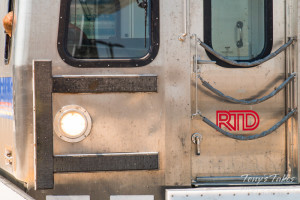(Editor’s note: This is fourth in a series on why most Americans don’t ride transit. The first installment is here, the second is here, the third is here, the fifth is here, and the sixth is here).
Crime, sexual harassment, and other invasions of privacy are common on metro systems throughout the world. Sexual harassment is especially bad on Tokyo subways, and a survey of 600 women transit riders in Paris found that 100 percent of them reported having been sexually harassed.

Such harassment often depends on the anonymity that comes with extreme crowding, but most American transit systems don’t get that crowded precisely because Americans won’t accept the invasions of personal space required for such crush conditions. Still, there are numerous complaints of sexual harassment on the New York City subway. Crime is rapidly rising on the DC Metro as well. Reports from Colorado’s Regional Transportation District (RTD) for a three-month period in 2015 showed 69 incidents of theft, and 36 incidents of harassment and other types of sex assaults.![]()
Crime, including thefts of smart phones, as well as violent crime, can be a big problem on light rail, partly because there is rarely anyone aboard to keep vehicles secure. Bus drivers presumably provide a modest deterrent to crime, but still there is the problem of bus-stop crime.
Some researchers argue that transit doesn’t really increase crime near transit stations. But for potential transit riders, perception trumps reality. A woman may only have to suffer one or two experiences with groping or other forms of sexual harassment before she decides to never ride transit again. A man who is brutally beaten at an RTD light-rail station is also going to avoid transit (as are others fearful for their safety at light-rail stations).
Some transit systems have designated women-only cars to protect women from harassment, but results have been mixed. Short of putting a guard on every bus and railcar, the issue of transit security cannot be easily solved.
Randal O’toole directs the Transportation Policy Center at the Independence Institute, a free market think tank in Denver.


